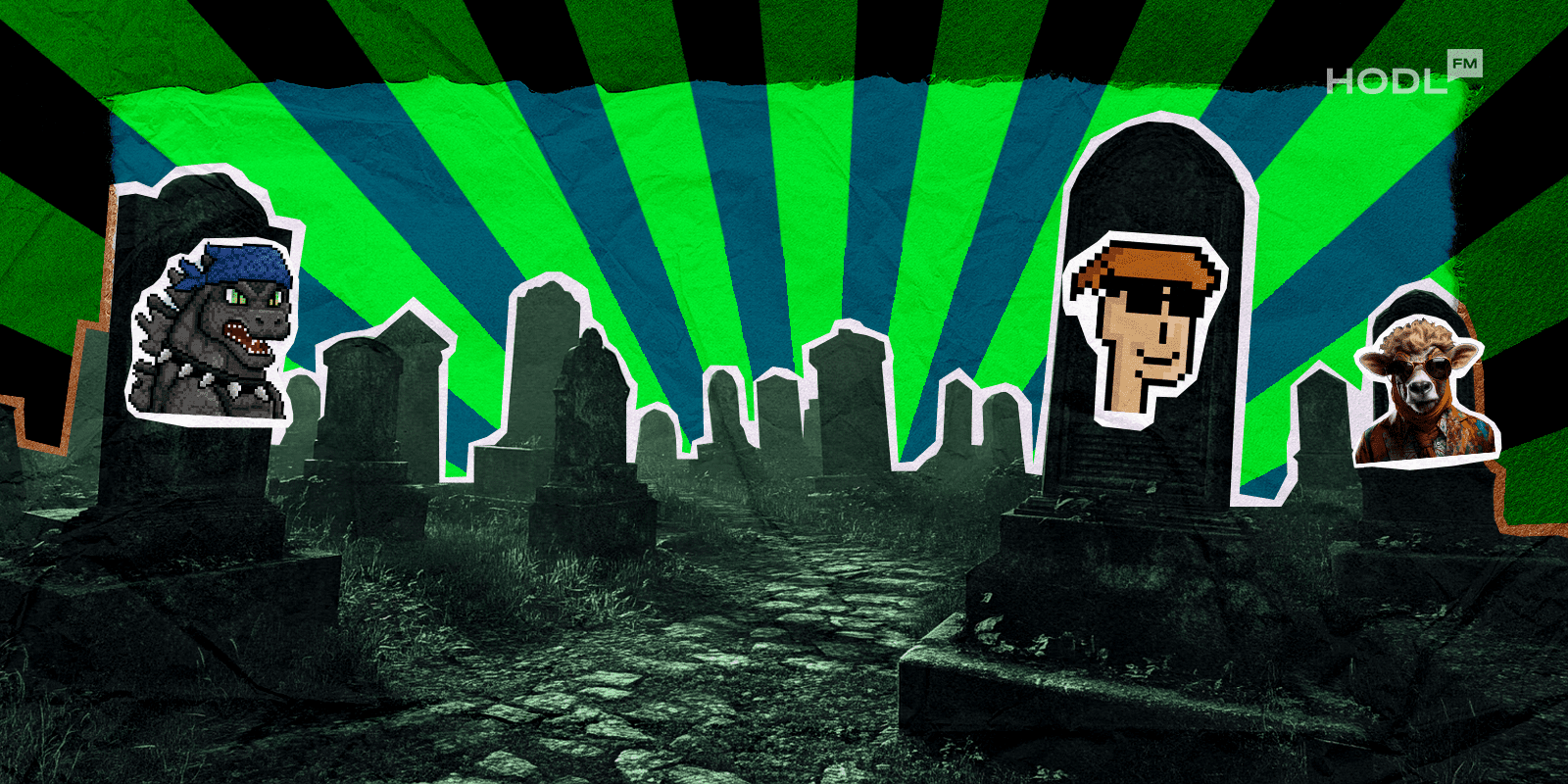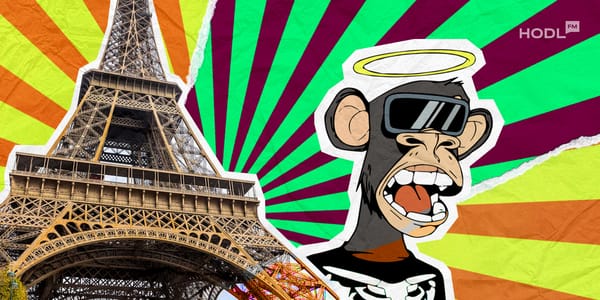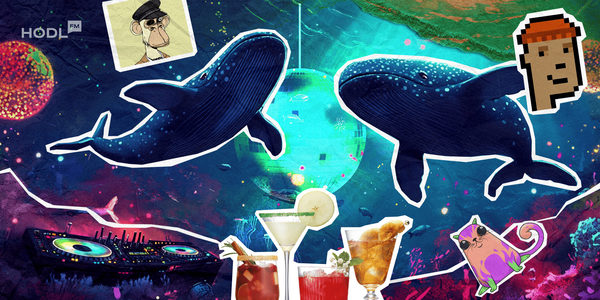NFTs, or Non-Fungible Tokens if you like, are digital assets that are stored on a blockchain. They are designed to prove ownership of anything from art to in-game items.
More: Magic Eden Thrives Despite NFT Market Crash
It is not unusual to hear that people have spent thousands, sometimes millions, on digital assets. Basically, NFTs are unique digital certificates that prove ownership of a particular asset. This makes them different from cryptocurrencies like Bitcoin or Ethereum, which are fungible (meaning one Bitcoin is always equal to another). NFTs are unique, and you can’t just swap your Bored Ape for a Cryptokitty and expect an even trade.
NFTs live on the blockchain, which is essentially a public ledger. This makes it easy for users to verify who owns what. This also allows for the tracking of sales, and even keeping records of the entire transaction history of each token. While this may sound fancy, there’s a catch. The NFT market has been crashing, and users are worried about its future. The tweet below showcases the public’s perception about the future of NFT.
Announcing NFTs Are Dead NFT Collection!
— NFTs Are Dead NFT Collection (@NFTsAreDead) June 4, 2021
A curated collection with some of the smartest tweets and articles celebrating the death of #NFTshttps://t.co/L69ZEbJ6gg pic.twitter.com/Qn3Niorery
Are NFTs Dead?
A report by NFTEvening shows that as much as 95% of NFTs are totally worthless, and that on average, NFT owners have experienced a 44% loss on their investments.
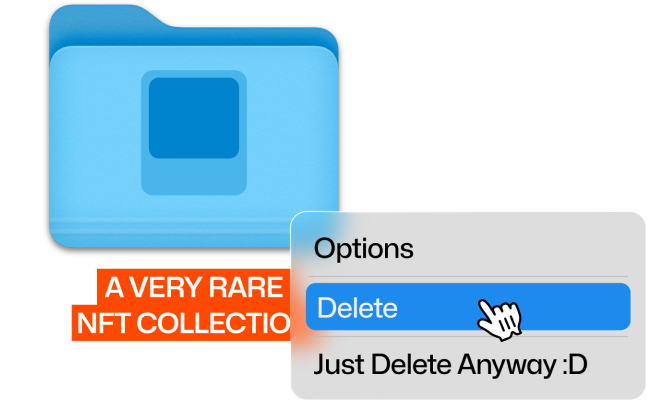
What happened?
There was a time when everyone wanted a piece of the NFT pie? Even people who didn't know how to attach a file to an email were buying “rare” pixel art. This wild speculation was fueled by hype and FOMO (Fear of Missing Out), and that’s how the NFT bubble inflated. Celebrities hopped on the bandwagon, dropping millions on these digital art pieces as the rest of us looked on in disbelief.
But much like that 2017 crypto boom, the hype couldn’t last forever. Soon, people began to realize that owning an NFT doesn’t necessarily mean owning the rights to the art. Yeah, you might own a token, but anyone can right-click, save, and enjoy your $300,000 JPEG for free. That’s like buying a prized item and finding out anyone can clone it and own it.
As the hype cooled down, so did the market. It's safe to say the NFT bubble burst wasn’t exactly subtle.
Technological Limitations
NFTs seemed revolutionary at first. However, beneath all the buzzwords like "decentralization" and "smart contracts," lie some glaring technological limitations. For starters, the biggest issue is that NFTs are largely tied to specific blockchains like Ethereum. When you have pending bills, the idea of buying a digital collectible becomes way less attractive. Paying $100 in fees for a $20 token doesn’t sound like such a good idea.
Plus, the tech isn’t as seamless as it’s hyped up to be. Users have been complaining about its clunky user interfaces and lack of interoperability across different platforms. This highlights a usability problem.
When trading in NFTs, you can’t just whip out your Coinbase wallet and buy any token you fancy. You would need specific wallets that are often tied to specific blockchains. This makes the process very complicated. This has added to the NFT market decline and reduced investor interest.
Lack of Real-World Utility
Let’s face it: NFTs are not exactly practical. While proponents say NFTs will revolutionize everything from property ownership to ticketing systems, the reality is far less exciting. Right now, most NFTs are digital art or collectibles. While you might come across cool projects such as music rights or event ticketing, the vast majority of NFTs are pretty useless.
There’s only so much you can do with a picture of a gorilla smoking a cigar.

Without real-world utility, NFTs are nothing more than speculative assets. When the hype dies down, and they’re no longer cool, owners would not know what to do with them. A token on the blockchain might, or might not, be worth something in the future. The NFT crash really highlighted this gap. Without tangible applications, most NFTs are usually not useful.
Environmental Concerns
Oh, and let’s not forget the environmental impact of NFT. Minting NFTs requires an insane amount of computational power, which means more energy consumption. Ethereum, the blockchain that supports most NFTs, has been infamous for its high energy consumption.
There is no such thing as "eco-friendly NFTs". The Polygon blockchain is using 90kW to run every hour (!) and has already used up 790 MWh of power but they try to whataboutothercrypto to downplay it.
— Sos 🔜Gamescom (@Sosowski) February 2, 2022
They have all lost their minds for fake money. Don't support this shit. pic.twitter.com/YRrHjP69Q8
A single NFT transaction can consume as much electricity as the average household does in a week. That’s right. With the growing focus on sustainability, this issue has drawn sharp criticism, even from some in the crypto community. Just check Twitter and you'll find plenty of discussions calling NFTs “eco disasters in JPEG form.”
I decided to look into some data to understand the scope of #NFT 's impact.
— momatoes (@momatoes) March 9, 2021
The two rightmost bars show carbon emissions of over 600 #cryptoartists and almost 18,000 NFTs on SuperRare. It exceeds the emissions of a literal tonne of magazines produced for an entire country. pic.twitter.com/hd20wBwj5K
The Future of NFTs
So, are NFTs really dead? Nah, probably not. Despite the market being in shambles, the underlying technology still holds promise. Larry Fink, CEO of BlackRock, envisions a future where NFTs could represent ownership of physical assets like real estate or even cars. The idea of tokenizing real-world assets (RWAs) has picked up. While digital apes might fade into obscurity, the concept of using NFTs for real-world applications might be here to stay.
The future is murky. That’s until we solve the technological limitations, price volatility, and the fact that most people still don’t really understand what an NFT is. Will NFTs redefine ownership, or will they end up as just another bygone section of the internet?
As it stands, NFTs are in the middle of an identity crisis. They are stuck between being a speculative investment and a futuristic tech tool. Their success depends on how well the space can evolve past the current hype and scams and start delivering real-world value.
More: The Rise and Fall of OpenSea: Inside the NFT Giant's Journey
Final Thoughts
In the end, the NFT downfall is a tale as old as time in the tech world. When something new hits the market, everyone rushes in, hoping to make a quick buck. But once the smoke clears and reality sets in, we’re left chasing the next big opportunity. For NFTs, the next chapter could be bright, or it could just be more monkey business.
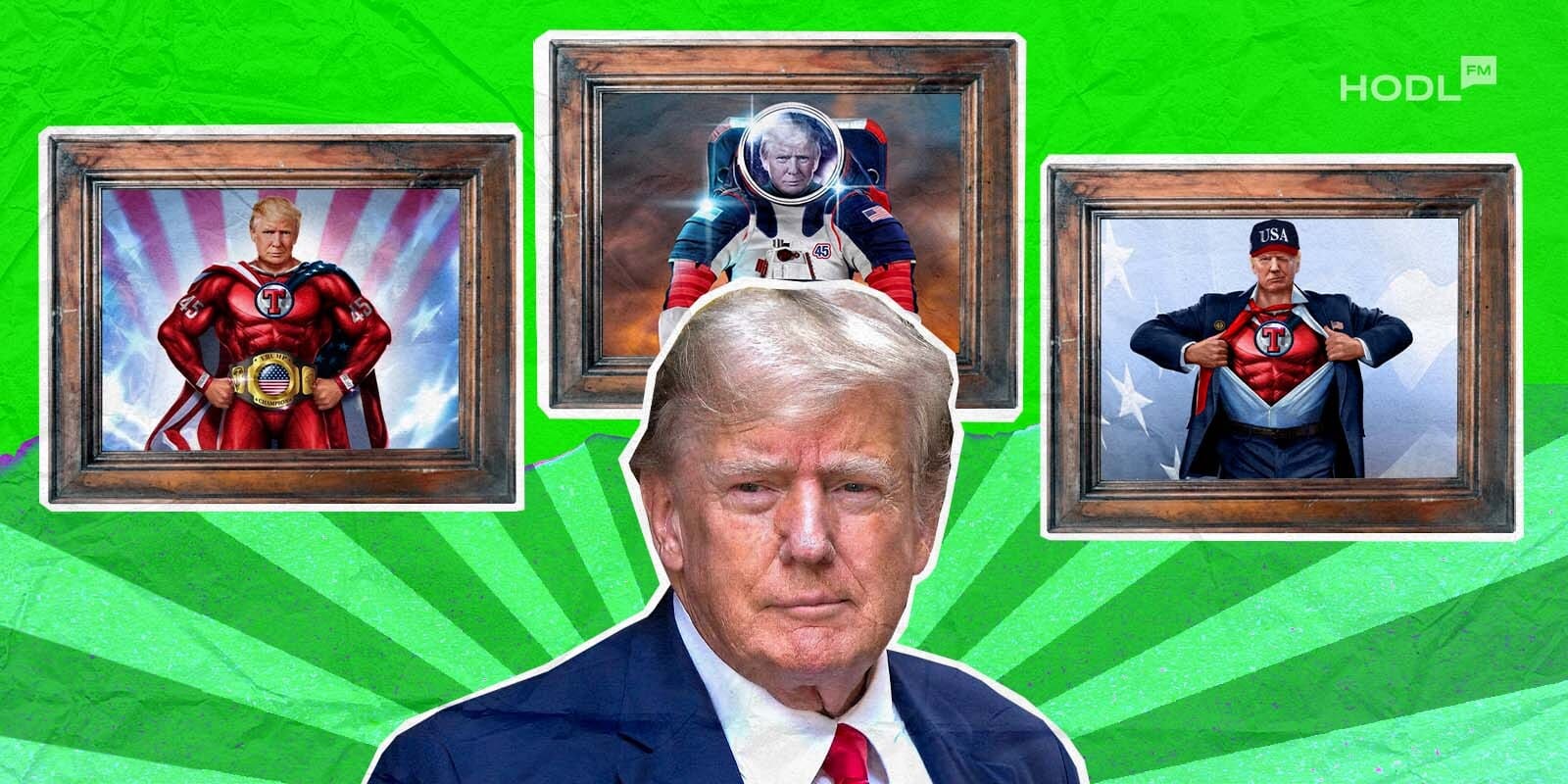
Disclaimer: All materials on this site are for informational purposes only. None of the material should be interpreted as investment advice. Please note that despite the nature of much of the material created and hosted on this website, HODL FM is not a financial reference resource and the opinions of authors and other contributors are their own and should not be taken as financial advice. If you require advice of this sort, HODL FM strongly recommends contacting a qualified industry professional.
